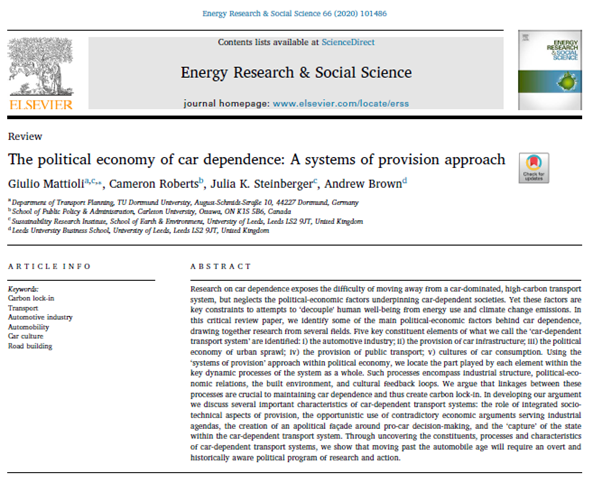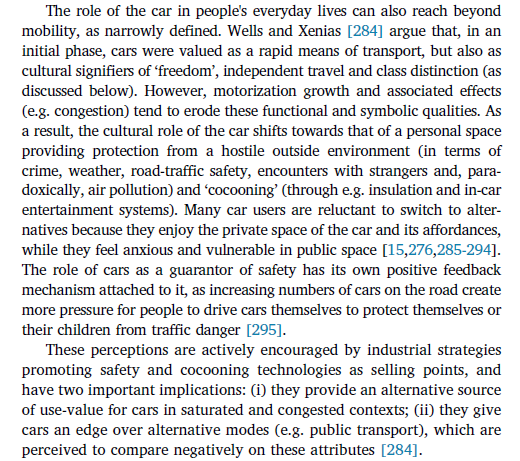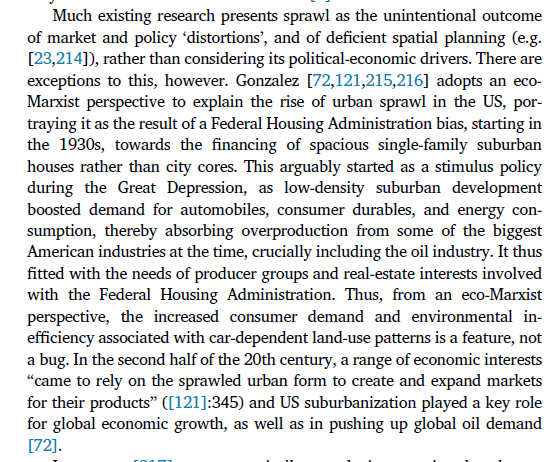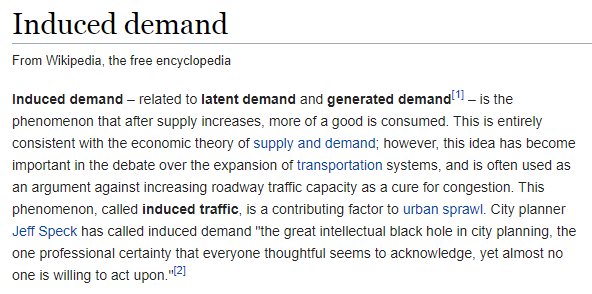We believe it has to do with the political economy of car dependence
Thread on my new @liliproj paper with @JKSteinberger @bikeademic & Andrew Brown
doi.org/10.1016/j.erss…

➡️ too apolitical
➡️ too much focused on consumption
➡️ too much focused on ‘win-win-win’
You might like this review paper.
Take me as a (bad) example: I’m a car dependence researcher, and until 2017, I hadn’t seriously engaged with the topic
Expect, it does. *From an industry perspective* it does: it's essental for economies of scale

PT systems that are too privatised/deregulated (e.g. UK, many developing countries) struggle with that.
Again, it's political.

➡️ the opportunistic use of contradictory economic arguments serving industrial agendas
➡️ state-capture by the complex of car-dependent transport systems
➡️ the apolitical facade around pro-car decision-making










